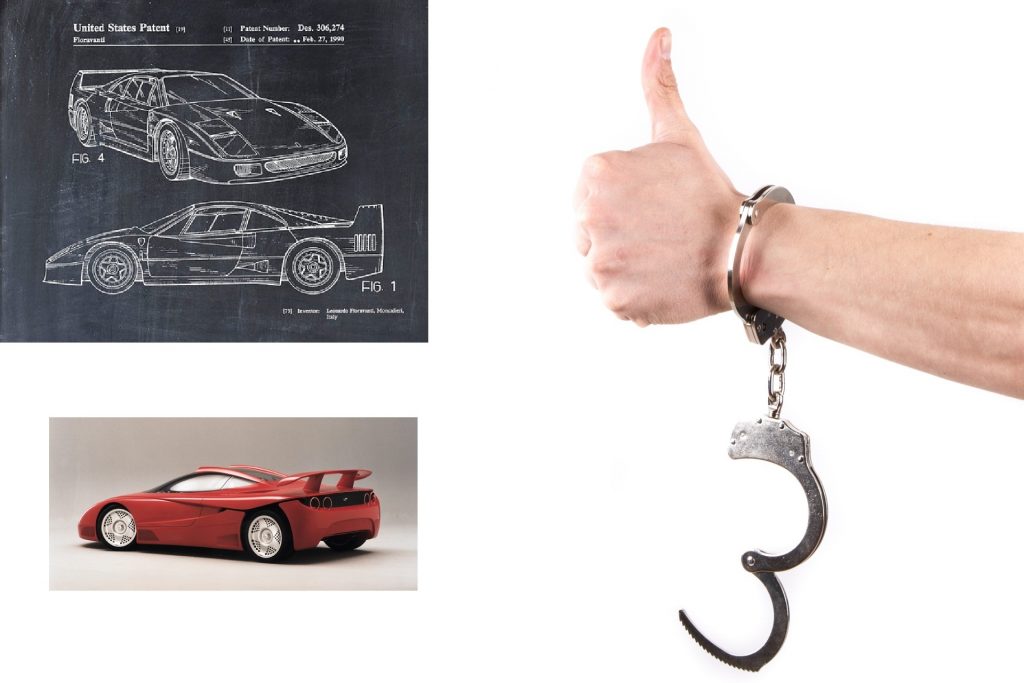We attended an AIPPI workshop about the new Israeli Design Law, which took place on September 19th 2017 in Tel Aviv, kindly sponsored and organized by Dr. Eyal Bressler.
A summary of the new Law for industrial designs and a comparison with the ancient Ordinance is described here.
Adv. David Gilat, a proponent of the new Israeli Design Law, reviewed the background that lead to the legislation.
Amongst other cases, he referred to impetus provided by the 2015 appeal of agents Samuel and Meryl Tomshover against their employer Art Optic Ltd.
The District Court found the agents guilty of profiteering from spectacles copies of employer’s design.
The agents had ignored the interlocutory injunction and had avoided providing full sales records.
Government of the compensation and cessation of marketing were under the lenient Commercial Torts and Unjust Enrichment laws.
These laws apparently did not suffice to deter the agents.
Adv. Eyal Price had similar criticism of the judiciary system, referring to cases regarding unjust enrichment that were treated under the ASHIR approach.
This famous precedent considers imitation a form of healthy competition. In addition, non-registration of IP by the original designer should allow imitators to act with impunity. In particular if no evidence of willful unjust enrichment can be furnished the courts would not intervene.
Attendant Knesset member Eitan Cabel was the patron of the new legislation. Not a lawyer himself nor an expert in the field of designs, he attributed the content and form largely due to the efforts of advocates David, Sa’ar Alon and others from the private sector, and members of the Design department of the Israeli Patent, Design and Trademark Office. Interestingly the major lobby for the change was apparently the Press.
We would have thought there would be a lobby of companies that file a lot of Israeli design applications. Those might have pushed against rights for unregistered designs.
Ironically, the legislator’s major interest in the Israeli Design Law was his personal interest in fonts. He earnestly wanted the Law to cover the fonts as well. However the font creators did not want to be identified as designers and prefer to be considered as artisans. Thus fonts are excluded from the Law.
According to Asa Kling, former Patents, Designs and Trademarks Commissioner, Israel’s designs were a kind of “little brother” of utility patents, being governed by an archaic ordinance from 1925. The new Israeli Law for industrial designs makes the former status a thing of the past. This change is much as is happening in Japan, Korea and some other countries.
The portion of individual applicants of Israeli design patents is about 40%. The high portion should justify allowing the designs to be largely or wholly governed by the applicants. However, Asa thought that the new Law needs some major revisions and auxiliaries to allow self-governance to occur.
For example, there will be difficulties in interpretation of what various key terms mean. For example, “general impression” serving to distinguish between different designs. There will be a multitude of dates to calculate during the prosecution, including now a grace period.
Notwithstanding, we do think that a patent administrator can do most of the prosecution under the new Law.
The added option of exclusivity for an unregistered design for a limited period is user friendly. There is also an option to transit into registered design within 12 months of use.
The procedures for the examination of design patent applications were only recently updated for the Ordinance. These will still be in effect for over 15 years, for the applications filed until the new Law comes into effect. These procedures should largely be suitable for examination of applications under the new Law, but at this point this remains to be decided and drafted.
According to Dr. Victor H. Bouganim, the Law does have some differences from the EU directives and regulations. The differences are apparently due to misunderstandings of some key terms such as complex products and “article”.






